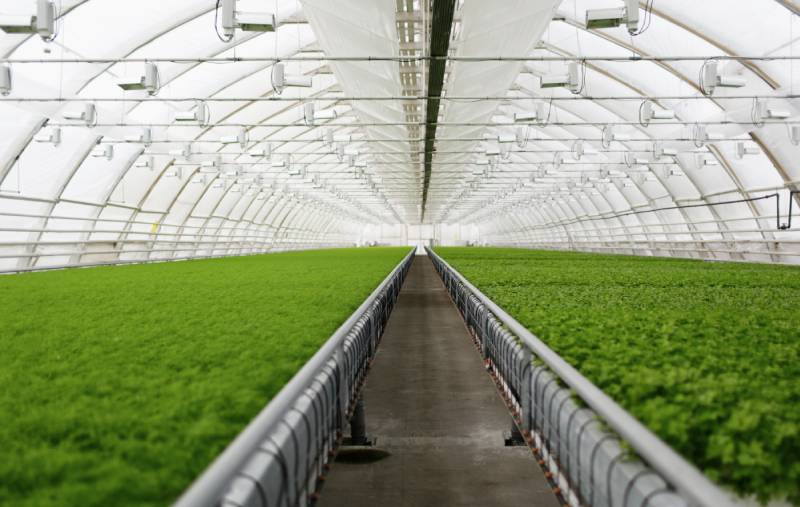A Sustainable Solution Through Climate and Site Analysis
Symbiotic Farms: A Sustainable Solution Through Climate and Site Analysis
10th July 2023

Introduction
Welcome to the captivating realm of symbiotic farms, where nature’s harmony and sustainable practices intertwine. In this human-driven exploration, we delve into the captivating world of climate and site analysis, unveiling the profound impact it has on the development of symbiotic farming systems. Brace yourself for an insightful journey as we uncover the intricacies of sustainability, unveiling the potential of symbiotic farms to revolutionize agriculture and mitigate environmental challenges.
Understanding Climate Analysis
At the heart of every successful symbiotic farm lies a comprehensive climate analysis. By examining temperature, rainfall patterns, wind speed, and solar radiation, farmers can identify optimal crop selection and determine the most suitable cultivation techniques. This data-driven approach allows for the creation of resilient agricultural systems that adapt to the local climate, minimizing water usage, maximizing yield, and reducing reliance on external resources.
Harnessing the Power of Site Analysis
Site analysis acts as a guiding compass for symbiotic farms, unlocking the potential of the land while preserving its natural integrity. Through meticulous observation and assessment of topography, soil composition, and drainage patterns, farmers can identify the most suitable locations for various crops and agricultural practices. By embracing the site’s inherent characteristics, such as natural slopes for rainwater harvesting or fertile soils for organic farming, symbiotic farms harmonize with the environment, fostering sustainable growth and resource efficiency.
The Symbiotic Farming Approach
Symbiotic farming thrives on the principles of synergy and interconnectedness. By harnessing the power of biodiversity and ecological relationships, farmers can create self-sustaining systems that mimic nature’s cycles. For instance, the integration of livestock, crops, and trees can create a mutually beneficial environment, where animal waste becomes fertilizer, crops provide shade and wind protection, and trees enhance soil health. This holistic approach reduces the need for chemical inputs, prevents soil degradation, and boosts overall productivity.
Environmental Benefits and Sustainability
Symbiotic farms bring a multitude of environmental benefits that contribute to sustainability. Firstly, the preservation of soil quality through organic farming practices prevents erosion, enhances water retention, and promotes long-term fertility. Secondly, the strategic use of agroforestry and hedgerows aids in carbon sequestration, reducing greenhouse gas emissions and mitigating climate change. Thirdly, water conservation techniques, such as rainwater harvesting and efficient irrigation systems, reduce water usage and alleviate strain on local water sources. Lastly, symbiotic farms create habitats for diverse flora and fauna, promoting biodiversity and preserving ecosystems.
Economic and Social Impacts
Beyond environmental benefits, symbiotic farms also yield positive economic and social impacts. By reducing reliance on external inputs, farmers can lower production costs and increase profitability. Additionally, the cultivation of diverse crops and the integration of value-added activities, such as processing and direct sales, create employment opportunities and stimulate local economies. Moreover, symbiotic farms foster community engagement and education, providing a platform for knowledge sharing, skill development, and fostering a deeper connection between consumers and the food they consume.
Conclusion
Symbiotic farms represent a transformative path towards sustainable agriculture, guided by climate and site analysis. By embracing the intricacies of local climates, harnessing the potential of the land, and adopting symbiotic farming principles, we can forge a harmonious relationship between food production and the environment. As we navigate the challenges of a changing climate and a growing population, symbiotic farms offer a beacon of hope, showcasing the power of sustainability to nourish both people and the planet. Let us embark on this journey together, cultivating a future where agriculture thrives in symbiosis with nature.
RECOMMENDED

Jali, a traditional architectural element renowned for its beauty and functionality, has evolved...

Green audits are essential tools that provide a comprehensive assessment of an organization's environmental...

Daylighting is a strategic element in sustainable architecture, essential for reducing energy consumption and enhancing...